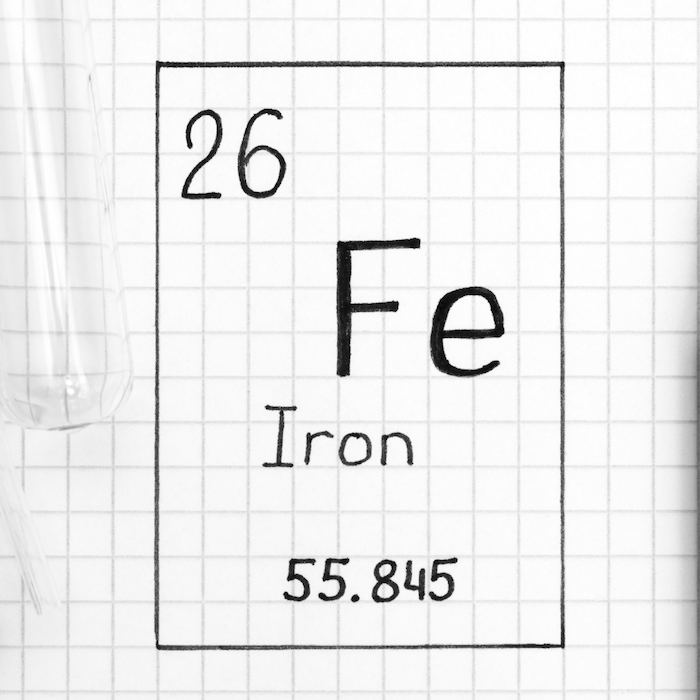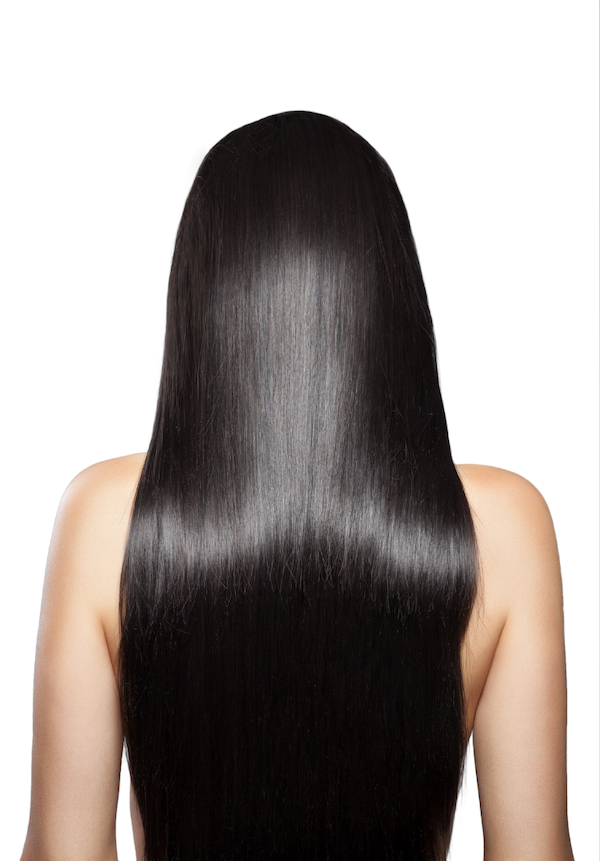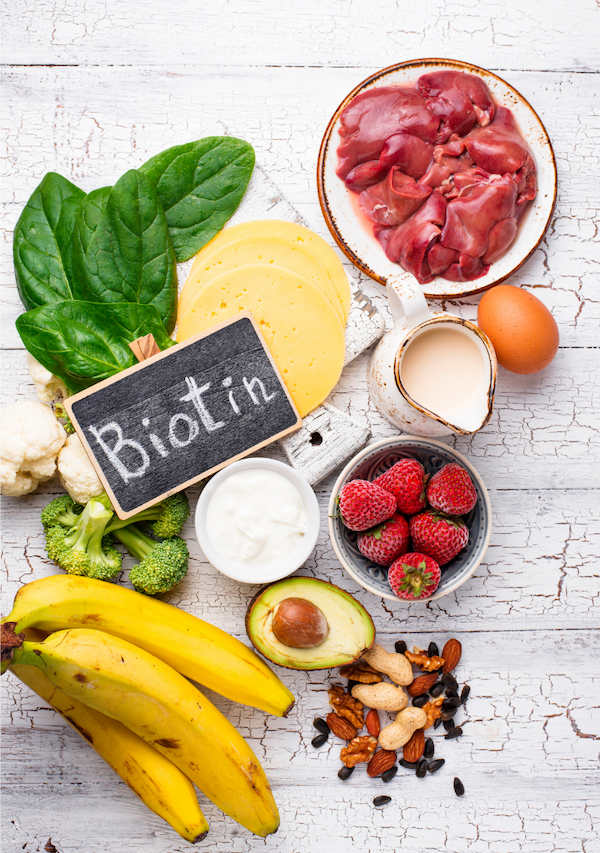Hair loss can be so frustrating.
Trust me, I know.
The worst part – aside from losing your hair, of course – is that it’s so hard to pinpoint why you’re losing your hair.
That’s why I’m writing you a series of articles on the reasons why your hair may be falling out. In today’s article, we look at how diet might just be the cause of your hair loss.
First, let’s take a look at what your diet may be missing that you need for hair growth.
To understand why a lack of certain nutrients may stunt hair growth, it helps to know about how the hair grows. Let’s recap.
Your hair grows from the hair follicle, which is hidden underneath the skin. On average, hair grows at a rate of 0.35 mm per day, and we lose roughly 100 hairs per day. The amount of hairs lost can increase with brushing, washing, and other practices that disrupt the hair.
The most important thing is to keep your hair follicles healthy, as they’re responsible for your hair’s growth. But your hair follicles are very sensitive. On top of that, they’re highly active – among the most rapidly dividing cells in your body.
This means your hair follicles need the tools (ie. nutrients) to divide not just frequently enough, but properly.
Let’s look at the nutrients you need most for hair growth.

Iron deficiency is thought to contribute to hair loss, which is unfortunate because it’s also the most common nutrient deficiency in the world.
Specifically, low iron levels have been linked to a type of hair loss called telogen effluvium, a condition where the normal hair growth cycle is disrupted. The result is excessive hair loss, with no hair to replace it.
Researchers believe that – when iron levels are low – the body diverts iron from the hair follicles to more crucial systems within the body. [1]
Studies have shown that people with hair loss typically have less iron in their blood than those who don’t have hair loss. [2, 3]
To ensure you’re getting enough iron, add more iron-rich foods to your diet like meat, seafood, beans, dark green leafy vegetables, dried fruit, or consider supplementing!
When it comes to the health of your hair follicles, vitamin D plays an important role.
Research has shown that those with hair loss conditions tend to be low in vitamin D. Not only that, but taking vitamin D supplements in these cases has resulted in hair regrowth. [4, 5, 6, 7, 8]
To show how prevalent this could be, a 2020 study involving over 100 people found that those with hair loss had significantly lower levels of vitamin D than those without hair loss. In this study, nearly 80% of the people with hair loss had low vitamin D levels! [9]
This one is difficult, because it can be a challenge to get enough vitamin D naturally.
If you’re worried that you may be low in vitamin D, you can check out the symptoms checklist by clicking here.
Do you have any?
Another important mineral, zinc plays a role in immunity, cell division, protein synthesis, and more.
It’s needed for proper function of the hair follicles, protecting against shrinkage, allowing for quick growth, and promoting recovery within the hair follicle.
Low levels of zinc can cause hair loss, with studies showing that zinc levels are also low in those dealing with hair loss conditions. [10, 11]
Biotin – or vitamin B7 – plays a critical role in the production of keratin, the protein which makes up about 95% of your hair. Additionally, biotin can increase the rate of hair follicle growth.
That being said, biotin is a water-soluble vitamin that is not stored for very long in the body, and isn’t produced naturally. As a result, your body primarily relies on the biotin you consume. But since it needs to be taken in every day, people can fall short.
Since biotin plays such a critical role in hair health, low levels of the nutrient can lead to hair loss.
For example, one study found a biotin deficiency in 38% of women who were experiencing hair loss. [12]
Another study gave biotin supplements to participants with both low biotin levels and hair loss. After 3 months, 23% of them observed a significant decrease in hair loss, while another 64% of them saw less of a decrease, but still a noticeable difference. [13]
As I mentioned above, the cells in your hair follicles are growing and turning over at a rapid rate.
To do so efficiently and effectively, the follicles need both protein and calories.
Without enough calories, the energy supply to the hair follicle is cut short, which can lead to hair loss. As a result, research has shown that diets very low in calories can actually lead to hair loss. [14, 15, 16]
When it comes to protein, your hair needs amino acids – the building blocks of protein – in order to grow properly. Remember, your hair is protein. So, not only can low levels just stop the hair from growing (and replacing lost hair) altogether, it can cause the hair that does grow to be brittle, thin, and weak. [17, 18, 19]

If you’re looking to get the healthiest hair out of your diet, there are foods you can focus on and also foods you should avoid (we’ll get to that in a moment).
Let’s take a look at which foods you should eat:
The Mediterranean diet consists of a wide range of nutrient-dense foods, such as fruits, vegetables, whole grains, and olive oil. Because it’s considered a diet that is so high in many anti-inflammatory foods, it’s thought to be able to support not just overall health, but also the health of your hair.
In fact, a 2020 review of 24 studies found that diets like the Mediterranean diet can promote hair health and prevent hair loss. [20]
Similar to above, a study from 2016 concluded that a balanced diet – full of protein, vitamins, and minerals – is necessary for the health and growth of our hair. [21]
Let’s take a look at the specific foods you should be adding to your plate for healthy hair:
Protein – Proteins contain amino acids necessary for hair growth. Healthy protein sources include:
Healthy fats – Unsaturated fats hydrate the hair and may prevent hair loss. Some great sources are:
Vitamin C – A vitamin C deficiency may negatively affect the creation of hair shafts. You can get vitamin C from:
Folate – This form of vitamin B stimulates the rebuilding of hair. Examples of folate sources include:

Biotin – Biotin can promote hair growth. Some good ways to get biotin are by eating:
Niacin – This B vitamin is necessary for hair health. To boost niacin levels, try:
Iron – Insufficient iron can cause hair loss. Sources include:
If you’re concerned about the thickness of your hair, there are a few things out there that you should do your best to keep away from.
Simple carbohydrates
Diets rich in simple carbohydrates may contribute to hair loss, according to research. [22]
These include sugary foods like candy, cakes, and cookies.
Researchers believe this is because simple carbohydrates increase sebum production in the scalp to beyond normal levels. They believe this may lead to inflammation, negatively impacting hair health overall.
Another reason may be due to these foods increasing the production of insulin, a hormone which – in higher levels – can have a poor effect on the blood vessels in the scalp.
One study found that eating fried foods and red meat may contribute to hair loss, as these may also cause the oil glands on the scalp to become overactive. [23]
Unsurprisingly, smoking cigarettes and consuming alcohol are both linked to an increase in hair loss.
Smoking has not only been linked to hair loss conditions, hair loss is more common in those who smoke. Researchers believe that nicotine may speed up the progression of hair loss. [24, 25]
Similarly, alcohol consumption is associated with higher risk of hair loss, whereas avoiding alcohol is linked to healthier hair. [26]
Maintaining the health of your hair is no different than maintaining the health of the rest of your body.
You need to ensure you’re getting proper nutrition. And not just the bare minimum, but enough to THRIVE!
Because your hair follicles are home to some of the most active cells in your body, a deficiency in a nutrient they need can hit them quite hard.
Vitamin D is one of these nutrients.
But unfortunately, an estimated 42% of American adults are deficient in this vitamin. [27]
If you’re worried you may be one of them…
Our friends over at Purality Health are currently offering up to 25% off on their highly absorbable liquid vitamin D!
On top of that, they’ll give you 6 months to try it RISK FREE!